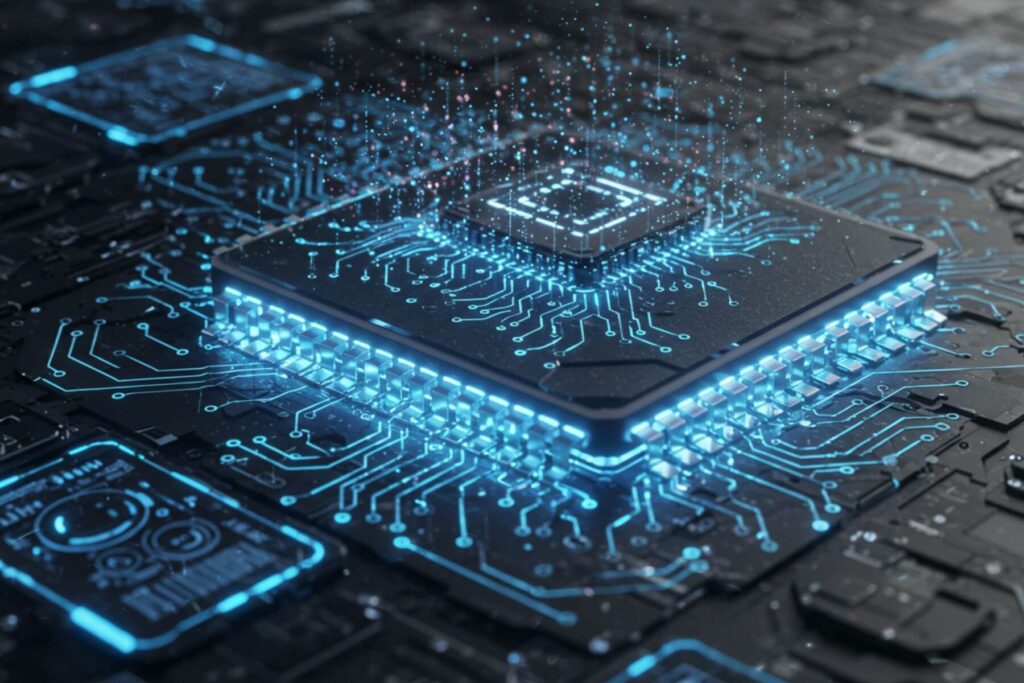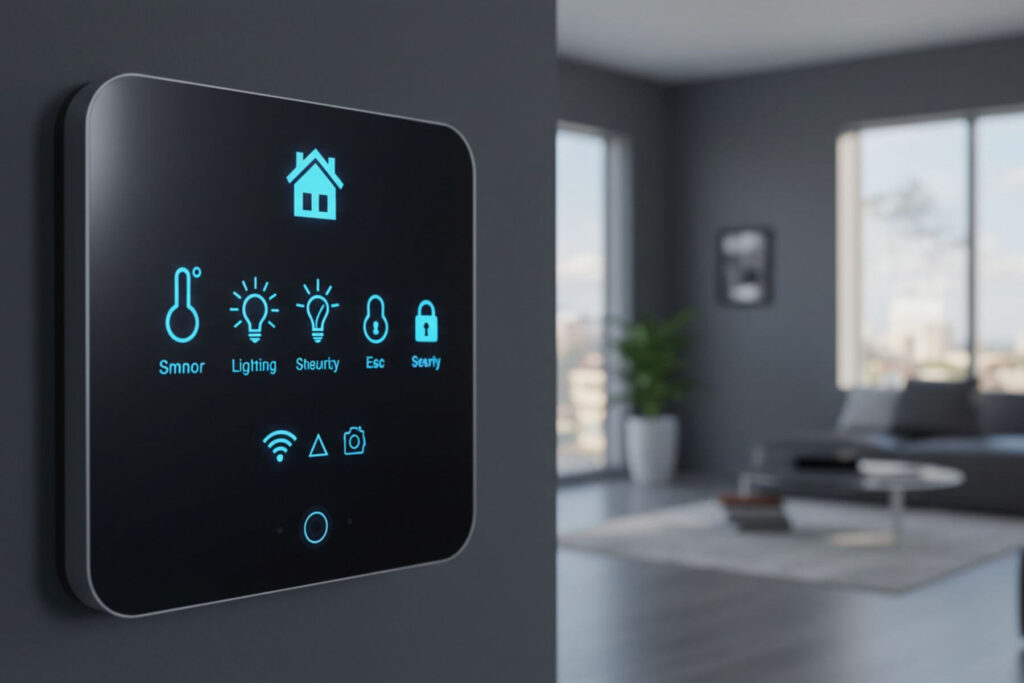Artificial intelligence is no longer a futuristic concept. In 2025, AI will take center stage in the tech world, shaping everything from business tools to personal devices. As the technology evolves rapidly, companies across the globe are investing heavily to stay ahead of the curve. The AI trends of 2025 are not just about smarter machines; they’re about transforming entire industries, solving real-world problems, and reshaping how people live and work.
Let’s explore the 10 top AI trends that are expected to dominate the tech landscape in 2025 and what they mean for businesses, developers, and consumers alike.
1. Generative AI gets smarter and more human-like
Generative AI has come a long way in a short time, and 2025 will see it reach new heights. Tools like ChatGPT, DALL·E, and others are already transforming how we write, create images, and brainstorm ideas. In 2025, generative AI will become even more human-like, producing text, music, video, and images that are nearly indistinguishable from human-created content.
Companies are beginning to use generative AI for marketing, product design, training materials, and even customer service conversations. As models continue to improve in accuracy, tone, and contextual understanding, they will become trusted creative collaborators in almost every industry.
2. AI and automation will revolutionize the workplace
Workplaces in 2025 will look very different thanks to AI-powered automation. From scheduling meetings and writing reports to analyzing customer behavior and optimizing supply chains, AI will help businesses become faster, smarter, and more efficient.
Rather than replacing all jobs, AI will automate repetitive tasks, allowing employees to focus on higher-level work. Many companies are already creating hybrid workflows where humans work alongside intelligent assistants that can generate ideas, pull data, and provide real-time insights.
3. Explainable AI will become a priority
As AI systems take on more responsibility, from healthcare diagnostics to financial decisions, understanding how they work becomes critical. In 2025, explainable AI will be a major trend. This means developing models that don’t just make decisions, but explain why they made them.
Transparency will be essential for building trust with users, regulators, and stakeholders. Especially in industries like finance, insurance, and healthcare, AI will need to show how it reached its conclusions. This shift toward interpretability will also help developers catch errors and biases early.
4. AI will drive personalized user experiences
In 2025, personalization will go beyond targeted ads. Thanks to AI, apps, websites, and devices will offer customized experiences in real time. Whether you’re shopping online, streaming music, or using a fitness app, AI will adapt the content and interface to your behavior, mood, and preferences.
Retailers are using AI to recommend products you’re more likely to buy. Streaming platforms are curating playlists and content lineups based on your habits. Even learning platforms are tailoring lessons to how fast or slow you pick up a subject. Personalization will no longer be a luxury; it will be an expectation.
5. AI will make cybersecurity smarter and faster
With cyber threats becoming more complex and frequent, businesses need faster responses. In 2025, AI will become a key weapon in the fight against cybercrime. AI tools will detect unusual behavior, stop threats before they spread, and automatically patch security holes.
Security systems will use machine learning to detect patterns and anomalies that signal a potential breach. This kind of proactive defense will help businesses stay ahead of hackers and minimize damage. AI will also play a bigger role in fraud detection, identity verification, and risk assessment.
6. AI chips and hardware will go mainstream
To keep up with the demand for faster and more powerful AI, chipmakers are designing specialized hardware for AI processing. In 2025, AI chips will be everywhere, from data centers to mobile phones and even smart home devices.
These chips will allow real-time AI processing without needing to connect to the cloud. That means quicker decisions, better performance, and improved privacy. Devices powered by AI chips will handle tasks like speech recognition, facial recognition, and natural language processing directly on the device, reducing lag and increasing efficiency.
7. AI will power more advanced robotics
Robots are getting smarter, and AI is the brain behind that evolution. In 2025, AI will allow robots to adapt, learn, and work alongside humans in new environments. From warehouse automation to elderly care, robots will become more helpful and intuitive.
Expect to see service robots in retail, hospitality, and even at home. These robots will be able to recognize speech, understand context, and interact naturally with people. Combined with computer vision and real-time learning, they will adjust their behavior based on the environment, making them far more effective than traditional machines.
8. AI will enhance healthcare and disease prediction
AI is set to transform healthcare in 2025, particularly in early diagnosis, personalized treatment, and remote care. With massive amounts of medical data being processed daily, AI will help doctors find patterns that humans might miss.
AI systems will assist with detecting diseases earlier through medical imaging and genetic analysis. They will also suggest personalized treatment plans based on a patient’s history, lifestyle, and DNA. Wearable devices will continuously monitor health, sending real-time data to AI systems that can flag issues before symptoms appear. This proactive care could reduce hospital visits and improve patient outcomes.
9. AI regulation and ethics will take center stage
As AI becomes more powerful, calls for stronger regulation will grow louder. In 2025, governments and organizations will push for ethical standards, rules, and accountability in how AI is built and used.
Topics like data privacy, algorithmic bias, and surveillance will dominate discussions. New laws will likely emerge to ensure AI is used responsibly and fairly. Tech companies will also be expected to build AI with safeguards that prevent misuse and protect user rights. Ethics won’t just be an afterthought; it will be built into AI development from the start.
10. AI will fuel the growth of digital twins and smart cities
Digital twins, virtual models of real-world systems, will become more common in 2025. These AI-powered simulations will help businesses and governments test changes before making them in the real world. Cities will use digital twins to optimize traffic flow, energy use, and infrastructure planning.
Smart cities will rely on AI to monitor air quality, manage public transport, and control lighting and energy grids. These systems will use data from sensors, cameras, and connected devices to make real-time decisions that improve efficiency and sustainability. With AI at the core, cities will become more livable, safer, and better managed.
Bottom line
The AI trends shaping 2025 are more than just technological advancements; they represent a fundamental shift in how society interacts with machines. From work and healthcare to security and creativity, AI is embedded in every corner of life. Businesses that embrace these changes will have a competitive edge, while those that ignore them may fall behind.
As AI becomes more accessible and powerful, it’s important to focus on transparency, ethics, and real-world impact. The future of tech isn’t just about smarter tools; it’s about building a smarter, more human-centered world with the help of artificial intelligence.


